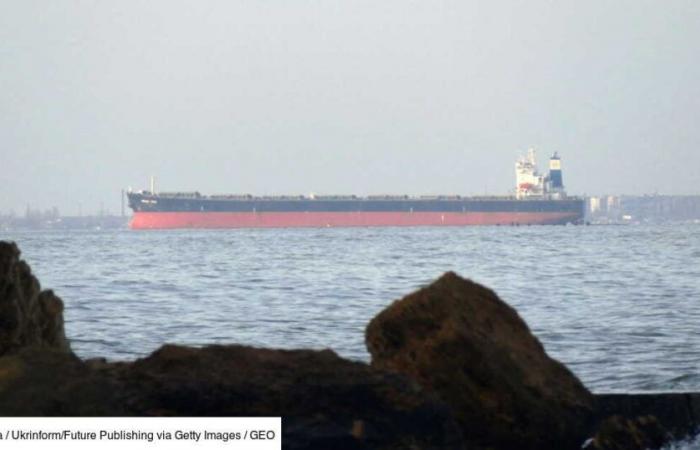Geopolitical upheavals rarely spare the seas. Today, however, maritime insecurity for merchant ships extends well beyond that caused by pirates in the Gulf of Guinea. Drones, cruise missiles and ballistic missiles cross international waters, on the busiest routes. The Red Sea and the Black Sea are thus vital passages for oil, coal and cereals… and threatened bottlenecks.
The “nodes” of maritime traffic under threat
The Houthis of Yemen, sometimes helped by Moscow, surround the Red Sea, mouth of the (very) busy Suez Canal, which normally sees more than 10% of world maritime trade pass through its blue waters. The rebels’ involvement in the war between Israel and Hamas and their attacks on Israeli or Tel Aviv-allied ships in the Red Sea and the Indian Ocean have caused a drop in international commercial traffic in this area.
The main dates of the war in Ukraine
The United Nations Conference on Trade and Development (UNCTAD) estimated in January 2024 that the volume of trade passing through the Suez Canal had decreased by 42% since the previous November. It is expected to record modest growth of 2% in 2024. There have been more than 100 incidents since the Houthi rebels began their attacks in the Red Sea in 2023, Bloomberg recalls. At least four crew members were killed and ships were perforated and set on fire by missiles. And this, without taking into account the risks weighing on the submarine cables of the global Internet.
In the Black Sea, hostile terrain in the war led by Russia in Ukraine, the dangers are legion. Missiles, marine drones… not to mention floating mines, which sometimes drift to the mouth of the Bosphorus Strait, in Türkiye. Ukraine accuses Russia of deliberately targeting maritime transport in the Black Sea and infrastructure enabling exports. On September 11, the bulk carrier Aya, carrying grain for Egypt, was hit by missiles while leaving the port of Chornomorsk. In all, more than twenty merchant ships were damaged, according to Mer et Marine.
Extreme insurers
Faced with this growing threat to international maritime trade, shipowners have two choices: lengthen the route to avoid dangerous “bottlenecks”, — according to the UN, “rerouting of cargo around the Cape of Good Hope has exploded, to maintain the flow of goods, “dramatically” increasing costs, delays and carbon emissions” —, or prepare to face the risks… But not without guarantee.
In a recent article, Bloomberg examined the wartime “boom” of the niche insurance market, vital to allowing oil, coal and grain carriers to navigate the dangerous waters of the Red Sea and of Ukraine. As a result, standard insurance protections are suspended in war zones, forcing ship owners to purchase a separate risk policy. This is generally in effect for seven days, but can also last a year, explains the American media.
A booming sector
That coverage helped maintain the flow of what analytics firm Kpler estimated was about $150 billion in cargo moving through the Red and Black Seas in the first half of last year. This equates to more than $830 million per day.
The sector is thriving: “There has been significant growth in the number of new marine insurance cover providers in recent years,” Louise Nevill, UK CEO of the marine, cargo and logistics business at Marsh & McLennan Co., the world’s largest insurance broker, tells Bloomberg.
The growth of this market does not only concern new players: NorthStandard Ltd. – the world’s second-largest provider of insurance against calamities such as oil spills – plans to expand several business lines, including war coverage. A lucrative sector: in London, the wartime hedging trade is reaching new heights.
Marsh & McLennan estimates that war risk premiums in London total around £500 million ($621 million). The global total could be closer to $1 billion (£805 million), according to anonymous sources.






